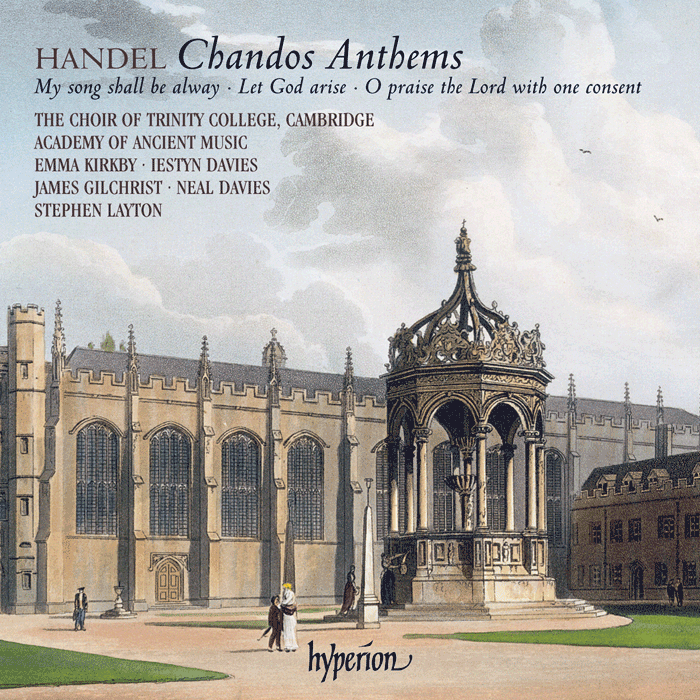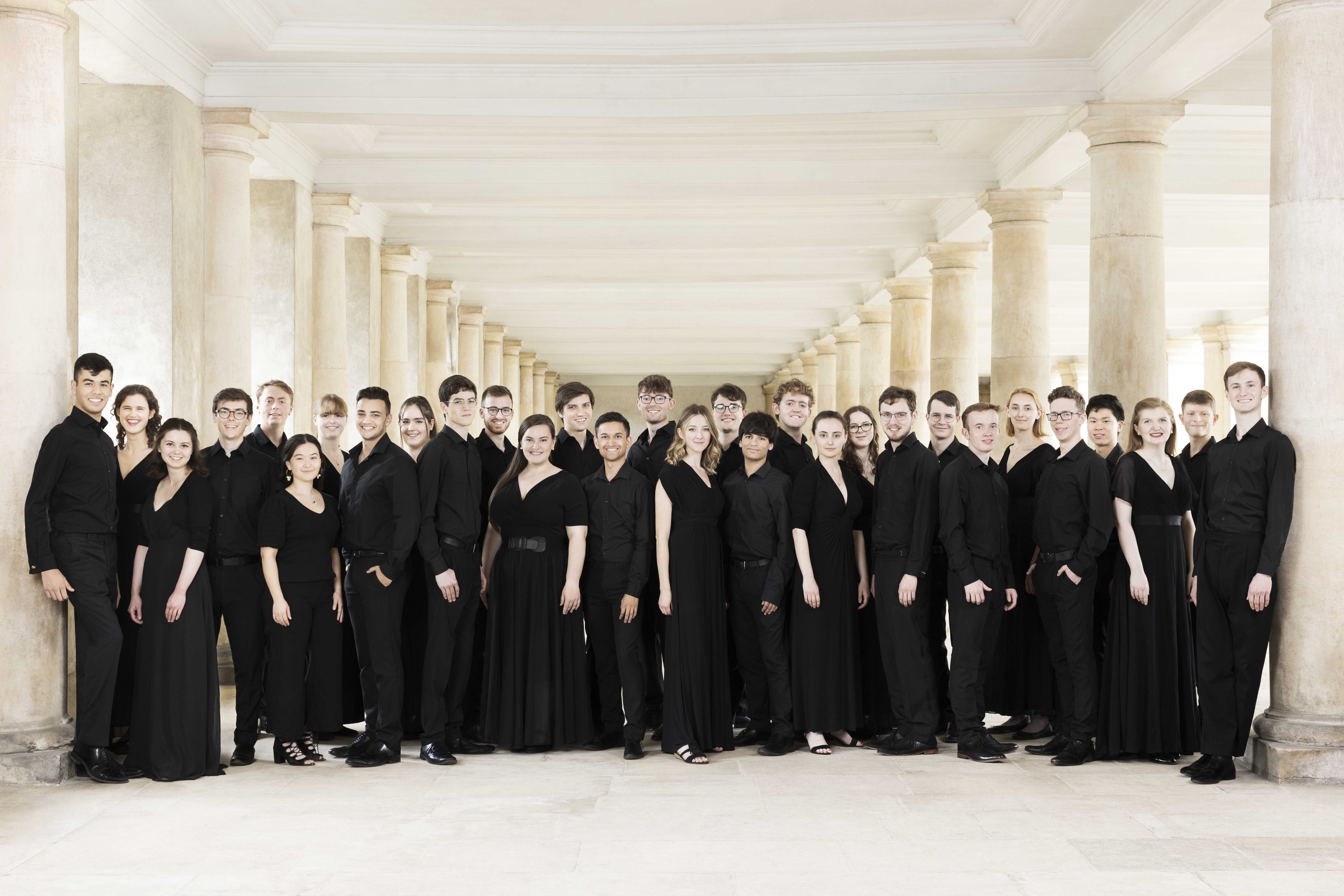Handel - Chandos Anthems, Vol.1 - International Record Review
> See recording details...The disc’s cover bears no claim to being the first instalment of a complete recording of the anthems Handel composed in 1717 and 1718 for James Brydges, then known as the fabulously rich Earl of Carnarvon but remembered by posterity as the profligate first Duke of Chandos. The four discs The Sixteen recorded under Harry Christophers for the Chandos label two decades ago remain the unique complete account of these delightful works using period instruments. I am not aware of any other period-instrument recording of any of these anthems since, apart from Graham O’Reilly’s slightly later recording of three of them (called ‘Volume 1’, incidentally).
The three anthems Stephen Layton directs on this disc are probably among the last of the 11 Handel wrote for the Duke. They all have four vocal soloists and a four-part chorus, whereas the earlier anthems were scored for soprano, tenor, bass and three-voice choir without an alto part. Like Christophers, whose alto James Bowman, Layton uses a countertenor soloist even in O praise the Lord (HWV254) and Let God arise (HWV256a), whose scores specify a high tenor. O’ Reilly had the excellent tenor Ian Honeyman take this part in his account of HWV256a.
The Duke was unique among English nobleman of the time in maintaining a private musical establishment. However, this was only a modest ensemble of singers and instrumentalists, which raises questions as to how these anthems were intended to sound in their original venue of St Lawrence’s parish church near the Duke’s palace of Cannons. O’ Reilly dispensed with a choir altogether, believing the Duke’s soloists alone sang the anthem’s choruses. With 17 choristers The Sixteen probably matches the size of many church choirs in Handel’s England, but this is about double the likely size of the Duke’s modest chorus, which was also exclusively male. Layton’s 40-strong Trinity College Choir is at least four times larger. Its sopranos are all women (Like The Sixteen) and, in addition, it has twice as many females as countertenors on the alto line. Trinity’s women do not sound particularly boyish either.
Trinity’s size and the Academy of Ancient Music’s correspondingly more numerous forces than were employed at Cannons may have influenced the smoothness and spaciousness of these new performances, although Layton seems to favour a fairly stately approach in any event. Sometimes, crisper articulation and more punch in delivering Handel’s vigorous writing in the choruses would have been welcome, although the choir’s firm tone and tightly disciplined singing, coupled with the Academy’s polished ensemble and phrasing are a considerable improvement on The Sixteen’s and O’Reilly’s sometimes raw and slightly untidy performances.
Layton’s’ soloists are quite effective overall, although they often apply more vibrato than ideal, especially the otherwise remarkable tenor James Gilchrist, whose occasional appearances in Masaaki Suzuki’s Bach cantatas series show he can sing with much greater purity. The weakest soloist is Neal Davies, whose bass voices has a slightly unpleasant blaring quality and lacks the resonance (but thankfully also the quaking) of The Sixteen’s Michael George. Emma Kirkby’s voice may no longer radiate its original virginal beauty but her contributions are unfailingly masterful. Her solo, backed by the choir, in HWV252’s lyrical opening movement and in HWV254’s gentle soprano aria, ‘God’s tender mercy’, are high points of these performances, easily outclassing Christopher’s two sopranos, Patrizia Kwella and Lynne Dawson. The young countertenor Iestyn Davies also sings impressively apart from his strangely bland rendition of his aria in HWV254.
The recording, made in Trinity College’s chapel, has the choir and orchestra (perhaps necessarily, in view of their relatively huge size) markedly more distant from the microphones than the soloists. This somewhat undermines the effect of Handel’s sparkling instrumental writing in the arias and duets and makes several of the choruses seem cooler than they should.
In sum, despite this disc’s many attractive qualities, it does not quite attain truly satisfying interpretations of these three anthems.

Hyperion Records CDA67737
